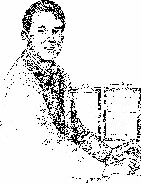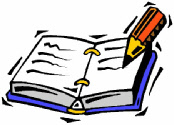

Make a point of visiting us weekly!

Return to Becoming a Learner CONTENTS PAGE
Page 14: All about Revision
It is possible that there may be someone who goes to the learning Contents Page and then jumps directly to this page. You have an exam coming up and you would appreciate some guidance on revision. Well, yes, you can come directly here but if you do you will have missed all the pages about getting a right attitude about becoming a Learner. If you have been studying and you have just come directly here, it is quite possible that you are not a ‘Learner’. You think you are because you’ve been on this course but actually you may not have the outlook of a Learner. If you have the attitude of “let’s see how little I can do to pass this exam,” you are NOT a Learner.
So, that being said, let’s get straight into it and start making some suggestion to help you with your revision:
Part 2: The Adventure of Learning
1. Revise, don’t Learn
- If you’ve read the previous pages you will know that we advocate ‘course-through-revision’, i.e. you will revise right the way through the course.
- If you leave revision to the last few weeks, much of what you call revision will in fact be ‘learning’ and not revision.
- When you go over your notes a week or a month after you wrote them, you will probably realise that there is much you don’t understand. (Remember the pages about ‘understanding’?)
- Do you also remember what we said about students getting only a Pass mark of 60% which means there were still large gaps in their knowledge?

2. Think about your Environment
- Remember our page about environment. You may wish to think about this now in the context of revision.
- If you decide to do continuous revision, you may want to separate out an hour a week or two hours a month to do this.
3. Review hard copies of the Course
- Again, do you remember what we said about the importance of getting the ‘big picture’ of the Course, how different bits fit in, and their significance within the whole?
- First of all therefore, as you start your revision, whether it be in week two or week thirty five, scan over your notes and get in your mind’s eye a picture of the structure of what you have before you. The big picture is important.

- Whatever else, you need uninterrupted time and space. Remember also what we said about distractions through the window, or the requirement of silence or of music, depending on your personal preferences. All these things are just as important in the revision phase.
- Also remember what we said about sleeping well, eating well and getting exercise. Stop revising when your mind indicates it is slowing down.
- If you have truly learnt something, you will also understand it and revision just acts as a reminder of what you have learnt. Learning should have taken place as you go along, but if you didn’t understand it, you didn’t learn it.
- Thus if you have just arrived here, three quarters of the way through your course, these comments may appear revolutionary to you, and indicate you probably have a lot of catching up to do. If you struggle through your notes thinking, “Whatever did that mean?” you are not revising but learning.
- If you are not disciplined enough to revise as you go, do start revision AT LEAST six weeks before your exam and think how to go about it – plan it!

- For the sake of ease here, although we recognise that many courses are made up of several main subjects, e.g. for a degree you may be taking Maths and two Science subjects, our ‘island that we are going to introduce you to shortly, is simply one of those subjects. For the even bigger picture you might see three islands.
4. Highlight Key Points
- Now this may mean key headings, key formulae, key definitions or key quotes.
- Imagine flying over the sea and from high up you spot a large island. This island is your Course Subject and already, following what we’ve said above, you have the shape of it in your mind.
- Now for some of us we will think longitudinally and ‘see’ the island as a long narrow strip and it’s divided into different parts. For others of us, we’ll ‘see’ the island as shaped and different parts of the Course form the different parts of the island. (Be creative in your imagination, make it fun!)
- Now dotted around this island are high points, high hills or even mountains (the bigger they are the more important they are). These are the key headings, key formulae, key definitions or key quotes. As you ‘fly’ over the island, these stand out and you anchor their location in your mind. As you do so, inevitably some of the surrounding ‘landscape’ will also stand out as well, as you focus on the high points.
5. Work on Specific Areas of the Island
- You have seen different parts of the Course as making up the whole island, but now you need to ‘visit’ those different areas. Examples of those individual areas might be ‘Calculus’ or ‘The Regency Period’ or ‘Atomic Structure’ or ‘Films of the 50’s’ or ‘Aquatic Mammals’ or ‘Root Vegetables’ or ...... you get the idea.
- Simple starting exercise: write one sentence that summarises that area, e.g. “Calculus, a branch of mathematics, is a study of change In the same way that geometry is the study of shape and algebra is the study of operations and their application to solving equations, and is usually seen as differential calculus and integral calculus.”
- Now see how that subject was divided up in your notes.
- Make flash cards with questions on one side and answers on the other and use them to test yourself and at the same time reinforce the material in your memory.
- Remember on Page 11, the second page about Memory, we suggested setting your notes out in two columns – the left one headings, the right one explanations and covering up the right one and speaking out answers to the headings. Use the same thing for revision.
- If you have done essays, say, on this subject, read the essay and note what your tutor said about it – take on board their comments.
- If there are areas of the topic you don’t understand still, ask your tutor to go over – but not until YOU have done the reading.




We have omitted the graphic of an island here so that you can imagine your own without any interference.